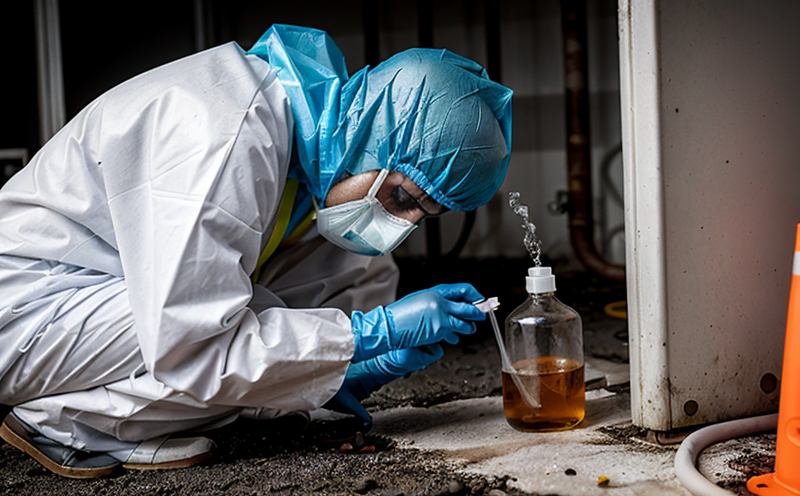ASTM E350 Chemical Analysis of Carbon and Low-Alloy Steel
The ASTM E350 standard specifies procedures for the chemical analysis of carbon and low-alloy steels using atomic absorption spectrophotometry (AAS) and inductively coupled plasma optical emission spectroscopy (ICP-OES). This method is widely used to ensure that materials meet specific chemical composition requirements as defined by industry standards.
The primary focus of ASTM E350 is on the accurate determination of key elements, including carbon, manganese, silicon, phosphorus, sulfur, molybdenum, chromium, nickel, and vanadium. These elements play a critical role in determining the mechanical properties, weldability, and corrosion resistance of steel products.
Material quality control is essential for industries such as automotive, aerospace, construction, and medical devices where precise material composition can significantly impact product performance. ASTM E350 ensures that manufacturers comply with these stringent requirements by providing a standardized approach to chemical analysis.
The testing process begins with the preparation of samples according to ASTM E350 guidelines. This typically involves cutting specimens into small pieces, cleaning them thoroughly, and ensuring they are free from contamination. The cleaned samples are then subjected to precise measurements using either AAS or ICP-OES instrumentation.
For accurate results, it is crucial that the testing environment be controlled to minimize external influences such as humidity and temperature fluctuations. Calibration of instruments must also adhere strictly to established protocols to ensure reliable data output. Once the analysis is complete, laboratories generate detailed reports outlining all measured values against specified limits set forth in ASTM E350.
ASTM E350 is particularly beneficial for quality managers who need objective evidence regarding material conformity with industry standards. Compliance officers can rely on this service to verify that purchased materials meet necessary specifications before integration into production processes. R&D engineers benefit from having consistent data points when developing new products or improving existing ones.
In addition to its role in ensuring compliance, ASTM E350 supports continuous improvement initiatives by providing actionable insights based on analytical results. This helps companies stay competitive by maintaining high standards of material quality throughout their supply chains.
Eurolab Advantages
At Eurolab, we pride ourselves on delivering exceptional service and expertise across various industries. When it comes to ASTM E350 chemical analysis of carbon and low-alloy steel, our team leverages advanced technology and rigorous quality control measures to provide reliable results every time.
We employ highly trained professionals who specialize in this specific field, ensuring that each sample receives meticulous attention from start to finish. Our state-of-the-art laboratories are equipped with the latest equipment, including high-performance AAS machines and ICP-OES systems, allowing us to conduct thorough analyses consistently across all samples.
Our commitment to accuracy extends beyond just technical proficiency; we also focus on customer satisfaction by offering fast turnaround times while maintaining strict confidentiality regarding proprietary information. By choosing Eurolab for your ASTM E350 needs, you can rest assured knowing that you are partnering with a trusted leader in the industry.
Quality and Reliability Assurance
Ensuring high standards of quality and reliability is at the heart of what we do here at Eurolab. For ASTM E350 chemical analysis, our processes are designed to meet or exceed expectations consistently. Here’s how:
- Strict adherence to methodology: Our technicians follow exacting protocols outlined in ASTM E350 to guarantee consistent and accurate measurements.
- Instrument calibration: All instruments used undergo regular recalibration to ensure precision throughout the testing cycle.
- Sample preparation: Samples are prepared according to precise guidelines provided by ASTM E350, ensuring uniformity for all analyses conducted.
- Data validation: Multiple checks are performed on raw data collected during analysis to verify its accuracy before final reporting.
Our robust quality assurance framework ensures that every aspect of the testing process contributes to producing reliable results. This includes not only technical aspects but also operational procedures aimed at maintaining consistency and traceability throughout the entire workflow.
Competitive Advantage and Market Impact
By leveraging ASTM E350 chemical analysis services from Eurolab, companies in sectors like automotive, aerospace, construction, and medical devices can gain several competitive advantages:
- Informed decision-making: Accurate knowledge of material composition allows businesses to make informed decisions regarding product design and manufacturing processes.
- Cost savings: Ensuring compliance with industry standards through rigorous testing helps avoid costly rework or scrap due to non-compliance issues.
- Better customer satisfaction: Providing products made from compliant materials enhances trust between suppliers and clients, fostering stronger relationships within the supply chain.
The ability to consistently demonstrate adherence to recognized standards like ASTM E350 can significantly enhance a company’s reputation in competitive markets. It signals commitment to excellence and reliability, which are increasingly valued by consumers and regulatory bodies alike.





